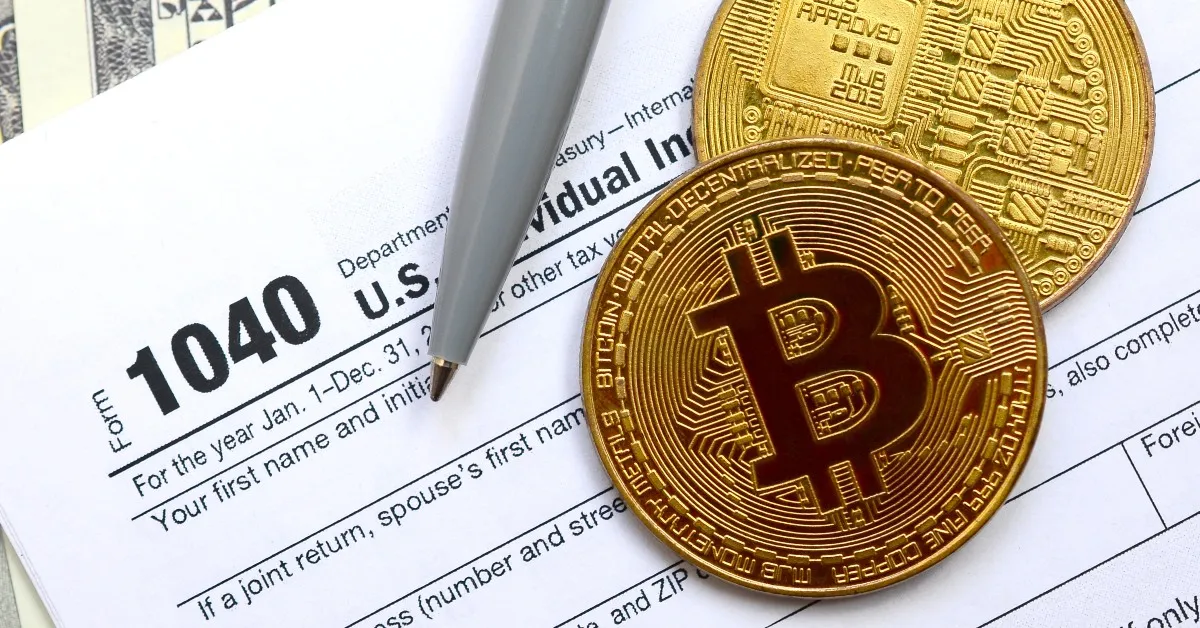You’re excited about the potential for high returns and maybe even a little thrilled by the idea of operating in a financial space that feels like the Wild West.
But here’s the million-dollar question: Can the IRS track your crypto transactions?
This is a question that keeps many crypto enthusiasts up at night.
And if you’re one of them, you’re in the right place.
In this article, I’ll dive deep into how the IRS keeps up with the rapidly evolving world of cryptocurrency.
I’ll explore their tools, the red flags that catch their attention, and what you can do to stay compliant.
You might be surprised by what you discover.
The IRS and Cryptocurrency: A Brief Overview
So, what’s the deal with the IRS and cryptocurrency?
Good question.
The IRS has been playing catch-up with the crypto world for a while now.
But make no mistake, they’re getting better at it.
2014, the IRS issued its first guidance on virtual currencies, classifying them as property for tax purposes.
That means, yes, your crypto transactions are taxable events.
But here’s where it gets interesting.
2019, the IRS sent more than 10,000 warning letters to suspected crypto holders.
And guess what?
They didn’t just pull those names out of a hat.
They had data—lots of it.
So, how exactly are they tracking crypto transactions?
Well, that’s what we’re about to explore.
Keep reading because you’ll want to know how to protect yourself.
Recommended Read: Is cryptocurrency legal in USA?
How the IRS Tracks Cryptocurrency
So, how does the IRS keep tabs on your cryptocurrency transactions?
You might be surprised.
First, the IRS has forged alliances with various blockchain analytics companies.
These firms specialize in tracing blockchain transactions, and their tools can identify wallet addresses associated with illegal activities.
But that’s just the tip of the iceberg.
Moreover, the IRS also collaborates with other federal agencies and has in-house tools for tracking digital currencies.
They’ve been investing in technology and training their staff to navigate the complex world of blockchain.
And don’t forget, the IRS also has the legal authority to subpoena information from cryptocurrency exchanges.
But wait, there’s more.
The IRS has a compelling way to get information—tax forms.
Starting with the 2020 tax year, the IRS has placed a question about cryptocurrency transactions at the top of Form 1040.
If you’ve engaged in any crypto transactions, you’re legally obliged to check ‘Yes’.
Failure to do this can lead to penalties or even legal action.
Keep reading to find out what you can do about it.
Tax Compliance and Reporting
First, every time you sell, trade, or use cryptocurrency to purchase goods or services, it’s a taxable event.
That’s right, each transaction needs to be reported on your tax return.
And if you’re thinking of not reporting smaller transactions, think again.
The IRS is increasingly cracking down on such omissions.
But here’s the good news: tools and platforms are designed to help you track your transactions and calculate your tax obligations.
These crypto tax software solutions can import your transaction history from various exchanges and generate tax reports.
It’s like having a personal accountant who specializes in cryptocurrency.
And don’t forget, if you’ve only bought cryptocurrency but haven’t sold or traded it, you generally don’t have a tax obligation yet.
Red Flags for the IRS
So, you’re committed to staying compliant with the IRS.
That’s a smart move.
But what red flags could put you on the IRS’s radar in the first place?
Knowing these can help you steer clear of unnecessary scrutiny.
First off, large transactions are a surefire way to attract attention.
If you’re moving significant amounts of money in and out of crypto exchanges, the IRS is likely to take notice.
So, if you’re dealing with large sums, ensure your tax reporting is spot-on.
Another red flag is frequent trading.
Yes, you heard that right.
If you’re trading cryptocurrencies like a day trader, the IRS might see this as a business activity with its own set of tax obligations.
Also, using privacy coins like Monero or Zcash can raise eyebrows.
While these coins offer enhanced privacy, they are often associated with illicit activities.
If you’re using privacy coins, be prepared to prove that your transactions are above board.
Failing to file a Form 1040 asking about cryptocurrency transactions is a glaring red flag.
Privacy Coins and Anonymity
Privacy coins like Monero, Zcash, and Dash are designed to provide enhanced anonymity and privacy for users.
These coins obscure the details of transactions, making it difficult to trace who sent or received the funds.
Sounds like a good way to stay under the radar, right?
Not so fast.
While privacy coins offer more anonymity, they’re not foolproof.
Using privacy coins can raise red flags with the IRS.
Why?
Because these coins are often associated with illicit activities like money laundering or tax evasion.
So, if you’re using privacy coins, you’re essentially putting yourself on the IRS’s watchlist.
Moreover, the IRS has been investing in technology and partnerships to crack the anonymity provided by privacy coins.
They’ve even offered bounties to anyone who can break the encryption of privacy coins like Monero.
Recommended Read: Best non kyc crypto exchange
Legal Consequences of Not Reporting
Let’s unpack the legal consequences you could face.
First off, failing to report income, including from cryptocurrencies, can result in hefty fines.
We’re discussing a penalty that can go up to 25% of your unpaid taxes.
Ouch, right?
But wait, there’s more.
If the IRS suspects intentional tax evasion, you could be subject to criminal charges.
This isn’t just a slap on the wrist; tax evasion is a felony that can result in up to five years in prison.
And don’t forget, you’ll still have to pay back the taxes you owe, along with potential penalties and interest.
Tips for Staying Compliant
Let’s talk about some actionable tips for staying compliant with the IRS.
- Keep meticulous records of all your transactions: Whether you’re buying, selling, or trading crypto, document the details.
- Consider using tax software designed for cryptocurrency: These platforms can automatically import your transactions from various exchanges and generate a tax report.
- Airdrops and forks?: Yes, you need to report those too. The IRS considers these income, so ensure they’re included in your tax return.
- Gifts and donations: If you’re gifting crypto, you may be liable for gift tax. Conversely, donating cryptocurrency to a registered non-profit could make you eligible for tax deductions.
- Consult a tax professional: Tax laws can be complex and ever-changing, especially in cryptocurrency. A tax advisor can provide personalized guidance tailored to your situation.
By following these tips, you’ll not only avoid the ire of the IRS but also sleep better knowing you’re fully compliant.
Recommended Read: Why are many crypto futures exchanges banned in USA?
Conclusion
So, what’s the bottom line? Can the IRS track crypto?
The answer is a resounding yes.
With increasing regulatory scrutiny and advanced tracking tools, the IRS is more capable of monitoring cryptocurrency transactions than ever.
But here’s the good news: staying compliant isn’t as daunting as it seems.
By keeping thorough records, using specialized tax software, and consulting with tax professionals, you can confidently navigate the crypto tax landscape.
Remember, cryptocurrency is exciting and full of opportunities, but it comes with its share of responsibilities.
Ignorance isn’t bliss when it comes to the IRS.
So, take the necessary steps to ensure you’re following the law.
It’s better to be safe now than sorry later.




